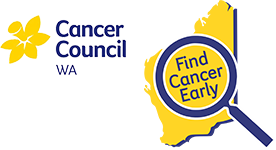Mayor goes public with cancer diagnosis in check-up plea.
It’s easy to make excuses for symptoms and not tell a doctor, clinic nurse or Aboriginal health worker about them, but if you don’t do something, you could be playing with your life.
This article was written by Taelor Pelusey and published in the Busselton-Dunsborough Times on 07 December 2018.
City of Busselton Mayor Grant Henley has taken his prostate cancer battle public in a bid to destigmatise the condition and encourage men to be more proactive about their health.
About four months ago during an annual check-up, a routine blood test returned higher than average levels of a protein known as prostate-specific antigen.
While not always an indicator of cancer, the result was followed by a series of tests, specialist referrals, scans, biopsies and the eventual diagnosis.
“The scary thing for me was that I had no symptoms… or family history,” Cr Henley said.
Despite initial apprehension, the former serviceman was moved to go public after his involvement in Movember — a month long men’s health initiative.
“I’d joined a Movember team with a few navy mates before I was even aware of my condition,” he said.
“It’s all about raising awareness about men’s health issues… and I thought to go through that, and then to not be open and honest about my condition, it didn’t seem right.”
Each November, men around the world sport moustaches to raise funds and awareness for the Movember Foundation, which shines a light on issues such as prostate cancer, testicular cancer and men’s mental health.
Cr Henley’s commitment involved refashioning his signature beard into a moustache, baring his chin for the first time in about 30 years, and helping the group collectively raise about $3000. By going public with his own diagnosis, he has also persuaded several friends and colleagues to speak to their doctors.
“I thought if I can, even just at a local level, destigmatise it and encourage men to speak to their GP, it’d be worth it,” Cr Henley said.
Prostate cancer is the most common cancer affecting West Australian men.
The odds of getting prostate cancer by the age of 75 is one in eight.
Cancer Council WA regional education officer Shenae Norris said men from regional WA were especially likely to avoid a trip to the GP on developing symptoms.
“It’s easy to make excuses for symptoms and not tell a doctor, clinic nurse or Aboriginal health worker about them, but if you don’t do something, you could be playing with your life,” she said.
Cancer Council advises men to speak to their GP if they have issues urinating, which might include pain, blood, a slow flow, difficulty stopping or starting, or a sudden urge to pee.
Unexplained weight loss is another symptom to consider.
While there are no current tests suitable to screen populations, early detection of symptoms greatly improve treatment outcomes.
Cr Henley will soon undergo surgery and told the Times he was “optimistic”, but “realistic”.
